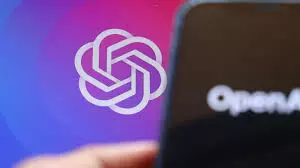OpenAI Study Reveals How 700 Million People Use ChatGPT Weekly: From Life Advice to Google-Style Searches
OpenAI reveals insights from its first ChatGPT user study. With 700 million weekly users, younger audiences dominate, shifting from coding to personal advice and Google-style searches.
OpenAI’s first study reveals how 700 million people use ChatGPT weekly — from life advice to replacing Google searches.

OpenAI has released its first in-depth study of ChatGPT users, offering a rare glimpse into how people worldwide interact with the AI chatbot. Based on anonymized data from 1.5 million users between May 2024 and June 2025, the study reveals a massive and diverse audience of nearly 700 million weekly active users.
What started as a tech novelty has rapidly become part of daily life, with ChatGPT now used for practical guidance, companionship, personal advice, and information-seeking — raising both excitement and ethical concerns about AI’s role in society.
📊 Who Uses ChatGPT the Most?
The report highlights a younger user base, with nearly half of all conversations coming from people aged 18–25. Interestingly, for the first time, more users had traditionally feminine names (52%) than masculine, compared to 2023 when 80% of users were male. This signals a broader cultural adoption and growing gender balance in conversational AI.
🔑 What Are People Asking ChatGPT?
- Practical guidance (28.3%) – including fitness tips, academic help, and how-to queries.
- Personal advice & companionship – 73% of chats in June 2025 were personal rather than work-related, covering relationships, lifestyle, and emotional support.
- Writing assistance – emails, editing, and communication help remain popular.
- Programming & coding – once a key use case, now down to just 4.2% of queries.
🔍 AI vs. Google: A Search Shift
One of the most striking findings is how information-seeking queries now rival practical guidance. Many users are asking ChatGPT the same kinds of questions they once typed into Google. With Google’s $55 billion search ad business potentially at stake, the rise of AI-driven search could reshape the digital economy.
🛒 Beyond Basics: Ecommerce & Emotional Support
Smaller but growing areas include:
- Ecommerce inquiries (1.9%) – from product recommendations to shopping guidance.
- Companionship – users turning to ChatGPT as a confidant.
- This trend has sparked parental control initiatives, with OpenAI testing alerts for guardians monitoring children’s chatbot use.
⚠️ The Challenges Ahead
Despite its popularity, ChatGPT is not without flaws. Hallucinations — when AI generates false or misleading information — remain a concern. OpenAI says it is working on confidence thresholds and stronger warnings to help users spot inaccuracies.
The company also stressed its privacy safeguards, noting that no human moderators read individual chats. Instead, AI models analyze content to improve safety.
📰 Partnership with The Washington Post
To enhance accuracy, OpenAI has partnered with The Washington Post, integrating vetted journalism into ChatGPT’s knowledge base. This collaboration aims to make responses more trustworthy while blending the strengths of AI and traditional reporting.
The Bottom Line
ChatGPT is no longer just a tech tool — it’s becoming a daily companion for millions, offering advice, answers, and even emotional support. But with its rising influence, the stakes are higher than ever when it comes to ethics, accuracy, and privacy in AI.

